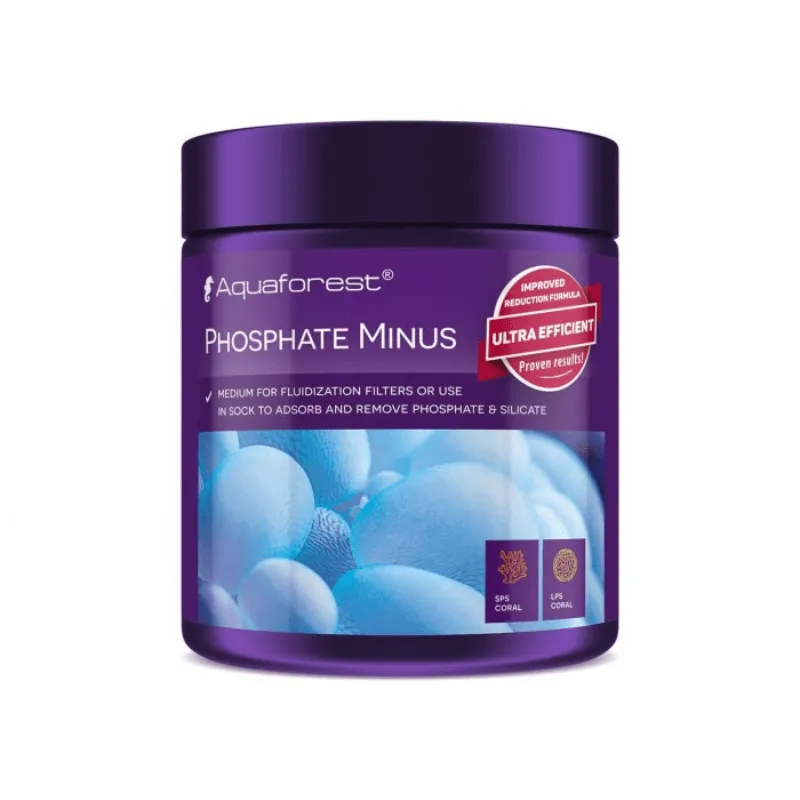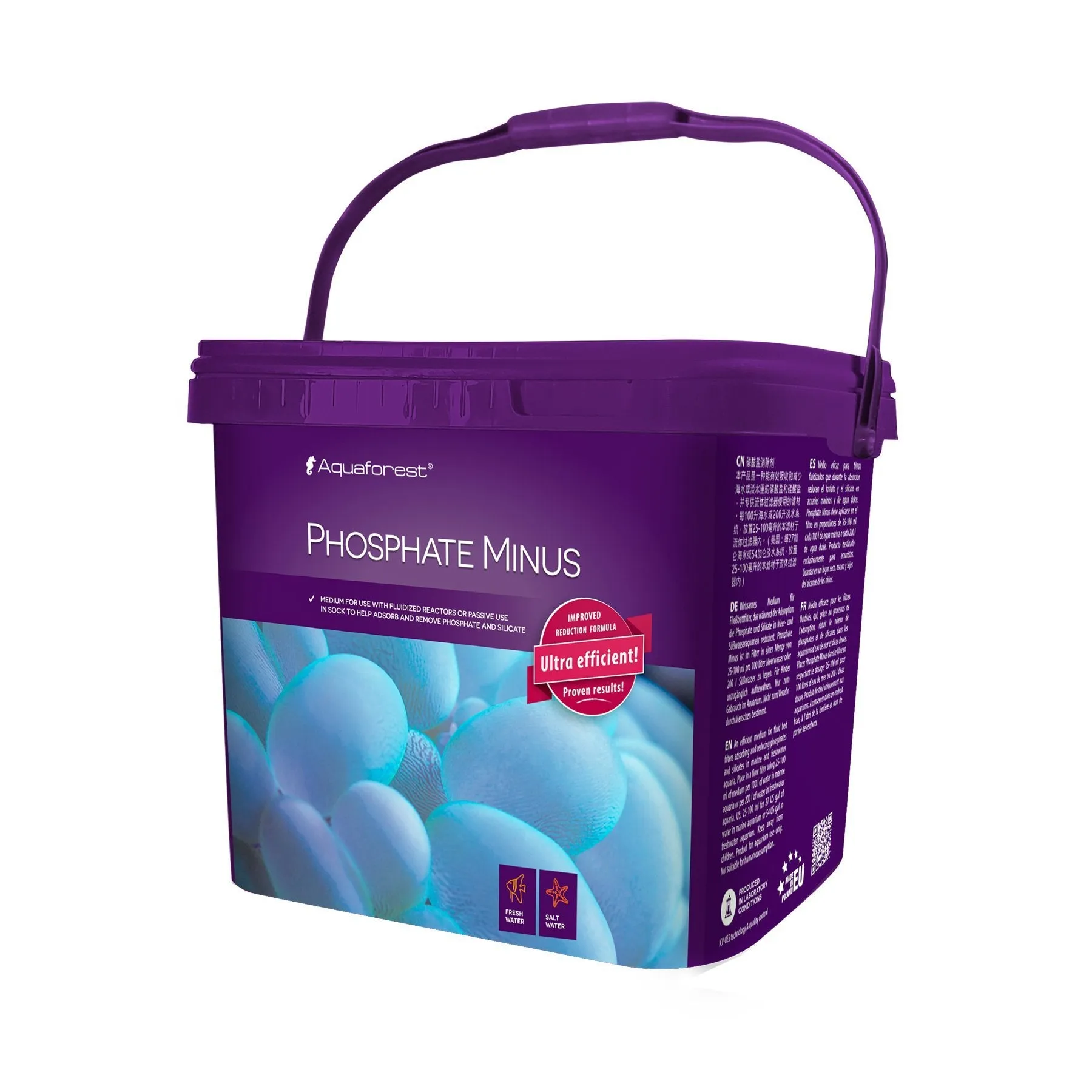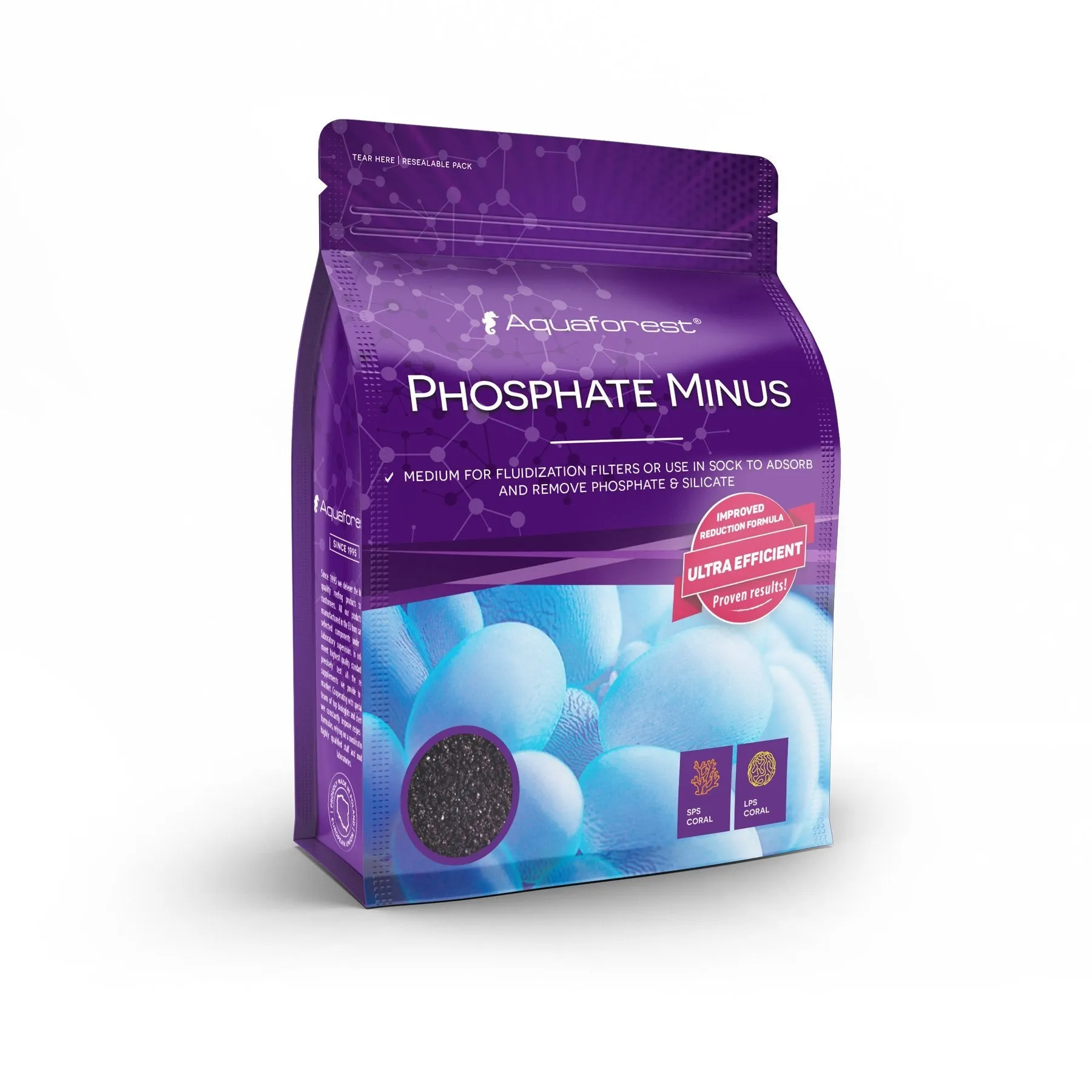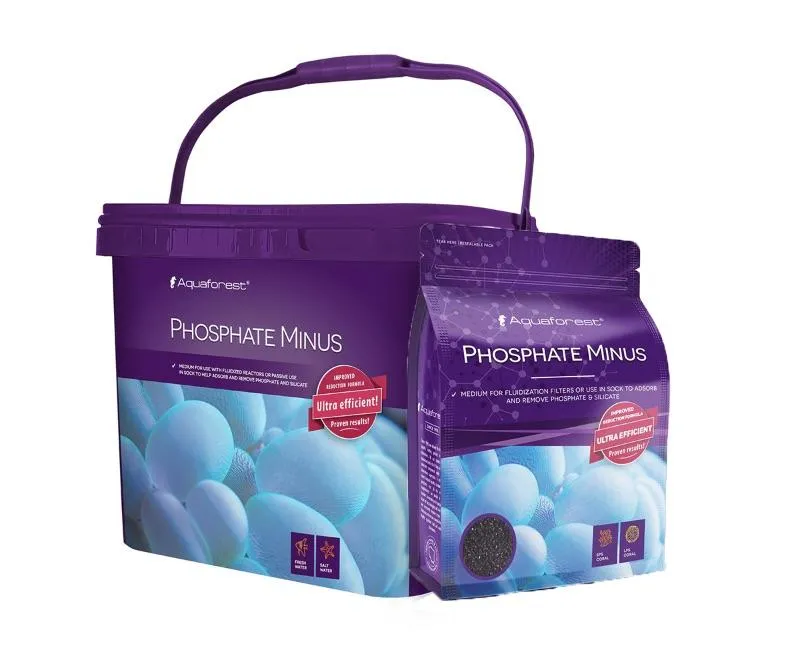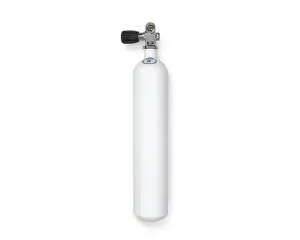Efficient medium for fluidization filters.
Too much food and supplements may be the cause of too high phosphate levels. Due to the unique technology Phosphate Minus effectively reduces phosphate and silicate levels in marine aquariums. Its adsorbing capabilities allow bonding large amounts of phosphate without negative influence on the aquarium inhabitants.
Reduce phosphate and silicate levels in a marine aquarium
Phosphate Minus is highly recommended both in new and in matured aquariums. In freshly set aquariums it prevents occurring high phosphate levels and in matured aquariums it reduces PO4 levels and stabilizes water chemistry. Due to maintaining the biological balance in the tank, it prevents the formation of undesirable green algae and the development of cyanobacteria.
Stabilize water conditions
Dosage: 25-100 ml per 100 l (27 US gal) of water. Phosphate Minus should be placed in media reactors with suggested water flow of at least 400 l/hr. It’s also suitable for a passive use in filter socks. Phosphate Minus should be replaced every 4 weeks or during significant rise of phosphate levels in the water. Shortly after placing in a filtration system, the product may slightly colour water. Although, Phosphate Minus should not be rinsed before use, brown dust is an active phosphate remover and is completely harmless for the aquatic life. Brown colouration of water will disappear after a short time. Rinsing the product in a RODI water will lower its efficiency.
What is great about this product?
- Restores chemical balance
- Prevents cyanobacteria development
- Helps reduce/eliminate algae blooms or algae growth
- Safe for tank inhabitants
- Perfect for new & matured aquariums
Good to know
- *Overdosed Phosphate Minus won’t work efficiently
- *Inefficient filtration may be the reason of high phosphate levels
- *A violent drop of nitrate and phosphate levels can destroy zooxanthellae and lead to corals death
- *Satisfactory levels for fish only aquarium: PO4 0,00-0,03 mg/l
- *Satisfactory levels for reef aquarium: PO4 0-0,02 mg/l
SEE WHAT IT LOOKS LIKE HERE




